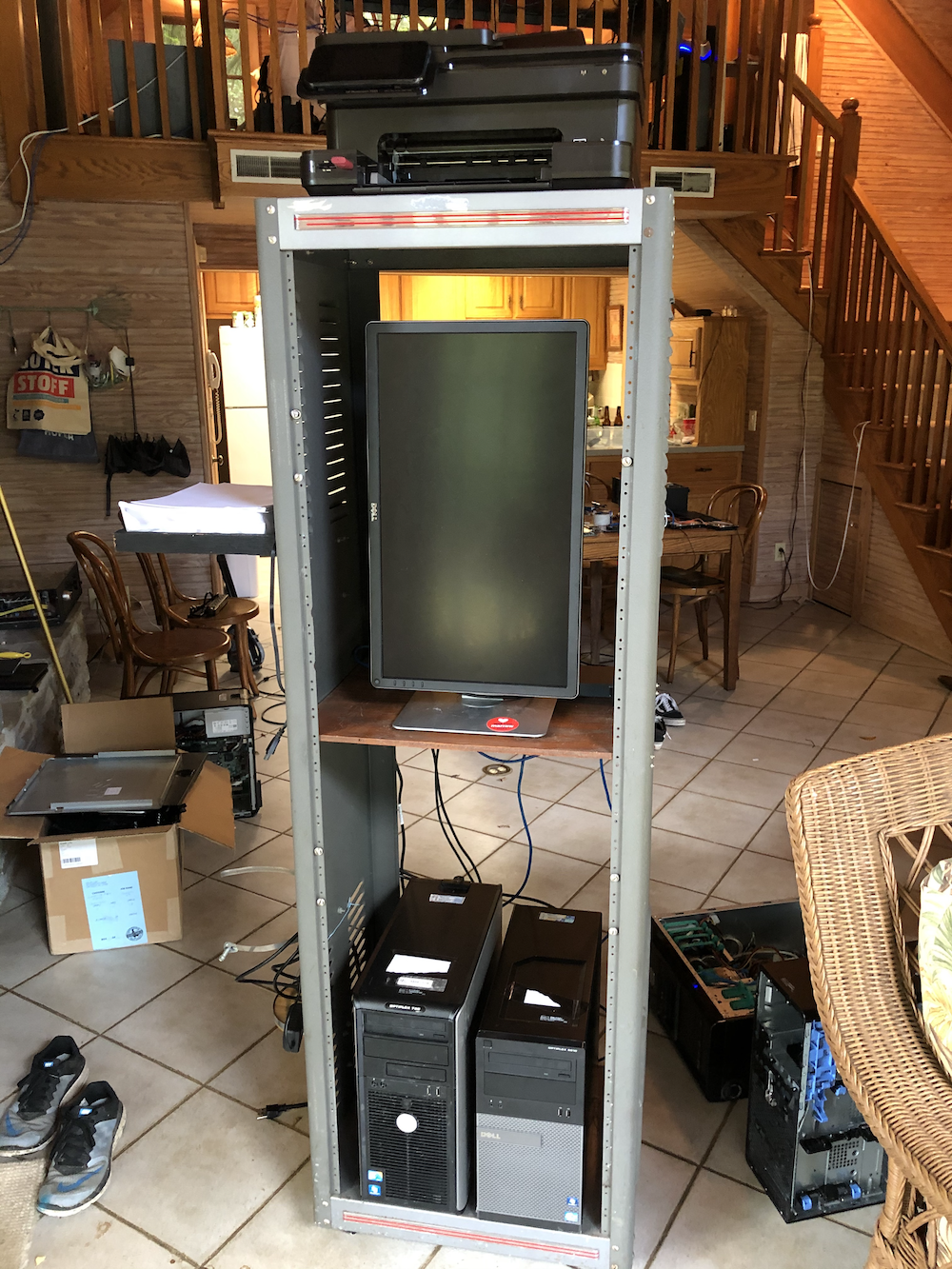
The next step on my journey down the tech rabbit hole is cloud computing. I’ve loved learning about other people who have built entire computing empires in their garages, and I was inspired to do the same. This type of project is called a “HomeLab,” and there are several great resources on the web to help people get started, such as what computers and servers to look for, how to get old, used, or cheap hardware, and how to set up power and networking.
Businesses produce a lot of waste. Food waste, old paper that should have been recycled but wasn’t, plastic bottles, etc. But there is another form of waste far worse for the environment than other forms of waste that people don’t normally think about or consider. E-Waste. Computers, Printers, Hard Drives, old Phones, watches, etc. It’s all going to the same landfill as your half-eaten calzone and your bottle of diet coke that you should have recycled but didn’t.
There is something more sinister about E-Waste. As old circuit boards and electronic components break down, they release harmful heavy metals into the soil that may end up in sources of freshwater. Lead, Arsenic, Mercury, and Cadmium are among these metals. How about some specific examples? An old Cathode Ray Tube (CRT) TV or Computer monitor contains an average of 8 pounds of lead. The magnetron inside your old microwave can release carcinogenic beryllium oxide if broken.
Soapbox aside, this is something that I’m passionate about. So, when I saw six old computers by the side of a dumpster, I was furious. I pulled my car over and took all of them home, and while you might think that they were dumped because they were broken, what if I told you that two of them booted up right away? And what if one more worked once I swapped out the old CPU, which was clearly heat-damaged?
I set out to build a supercomputer. Essentially, all that means is that I have multiple computers that I can distribute tasks to via a master computer that acts as a task scheduler. With Linux installed on all computers, I installed ssh, which will allow me to send commands to each computer from my laptop. I also installed MPICH on each computer, which is a communication protocol for supercomputers. MPICH automatically distributes workloads across multiple systems. So for example, if I wanted to estimate the value of Pi to 10,000 decimal places, I could have each of four computers calculate 2,500 decimal points.
Unfortunately, my supercomputer only has two nodes until I can upgrade my network and power infrastructure. However, for the time being, they act as two additional nodes for the Rosetta@Home project. With 8 computers on my account, I now have access to almost 1 TeraFLOP of processing power. That’s almost 1 trillion floating-point operations per second!
Ultimately, this project has helped me realize my passion for distributed computing projects, especially when it comes to rescuing equipment from the landfill! I hope to do a lot more with this in the future!
Back to Projects